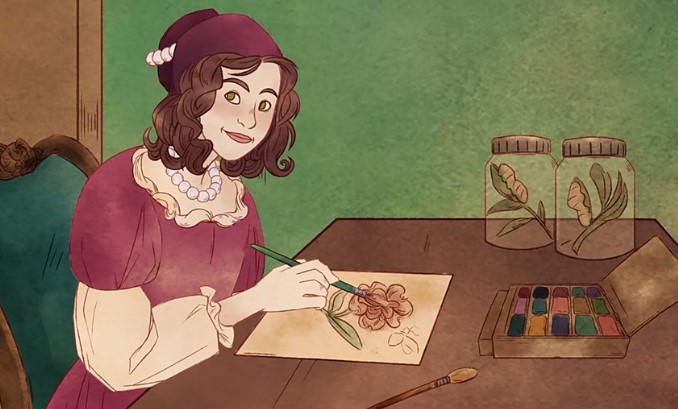St Hugh’s Emeritus Fellow advises BBC on animation of the life and work of Maria Sibylla Merian

St Hugh’s Dean of Degrees and Emeritus Fellow, Professor Jeyaraney Kathirithamby acted as the academic consultant on an animation entitled: “The woman whose paintings changed science forever”, produced by the BBC’s Ideas programme in partnership with the Royal Society.
The three-minute film tells the story of the 17th century naturalist and artist, Maria Sibylla Merian (1647-1717) using animation based on her own illustrations. Maria was one of the first naturalists to make careful observations of the metamorphosis of insects and amphibians, at a time when little was known about it; and she was one of the first female scientific explorers. Her delicate illustrations were brilliantly coloured, and her notes remarkable for their scientific detail, considering that she only worked with a paint brush and a magnifying glass. Her work on the biodiversity of Suriname in South America, despite being over 300 years old, is still valued by scientists and could show us how some species may adapt to climate change.
To view the animation please click here.
Jeyaraney also co-authored a book Maria Sibylla Merian Artist, Scientist, Adventurer (Getty) which was published in 2017 and won the 2018 Moonbeam Books Gold Award. A Japanese translation was published in May 2022. For more information please click here.
